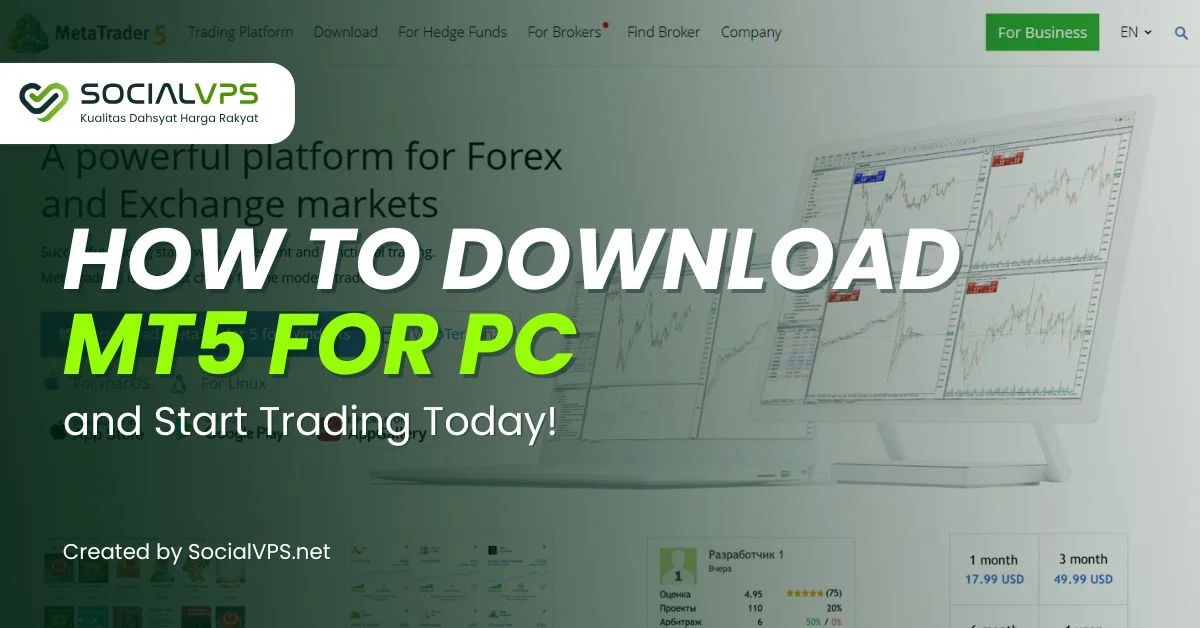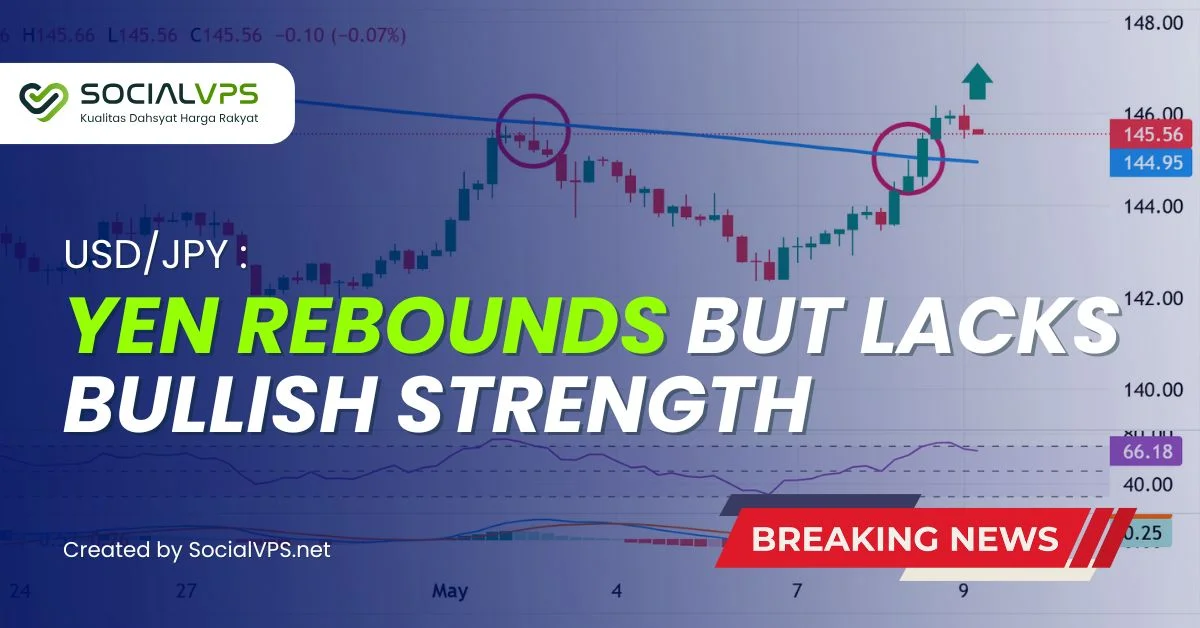SocialVPS.net — Forex trading is a fast-paced world where every second counts. Whether you’re an experienced trader or just starting, the efficiency of your trading setup can make or break your success. One critical factor in this setup is the number of servers you use. But how many servers do you really need for forex trading? Let’s dive into the details and figure out what works best for your needs.
Why Server Performance Matters in Forex Trading
When it comes to forex trading, speed and reliability are non-negotiable. The forex market operates 24/5, with prices fluctuating constantly. Even a one-second delay can cost you money. That’s why server performance plays such a crucial role.
Servers act as the backbone of your trading system. They host your trading platforms, execute orders, and ensure everything runs smoothly. A poorly performing server can lead to latency, missed opportunities, and even financial losses. So, understanding how many servers you need—and what impacts their performance—is essential.
Now that we’ve established the importance of server performance, let’s explore the factors that influence how many servers you’ll need for your trading activities.
Factors That Impact Your Server Needs
- Trading Style
Are you a day trader, scalper, or long-term investor? Different trading styles demand different levels of server performance. For example, scalpers—who rely on executing multiple trades within seconds—need ultra-low latency servers. On the other hand, long-term traders may not require the same level of speed but still need reliable hosting. - Use of Automated Systems
If you’re using automated trading systems like Expert Advisors (EAs) or algorithmic trading bots, your server requirements increase. These systems often need dedicated resources to avoid bottlenecks and ensure smooth operation. - Number of Trading Accounts
Running multiple trading accounts simultaneously can strain a single server. Each account adds to the processing load, so having additional servers might be necessary for optimal performance. - Geographical Location
The physical location of your server matters. Proximity to your broker’s data center reduces latency and improves execution speeds. If your broker has servers in multiple regions, you may need to distribute your own servers accordingly.
How Many Servers Do You Actually Need?
So, after considering these factors, how many servers do you really need for forex trading? The answer depends on your specific setup and goals.
Single Server Setup: Is It Enough?
For most individual traders, a single high-performance forex VPS (Virtual Private Server) is sufficient. A good forex VPS offers low latency, high uptime, and robust security—all critical for successful trading. With proper optimization, a single server can handle multiple accounts and EAs without issues.
However, there are scenarios where more than one server becomes beneficial.
Multi-Server Setup: When Does It Make Sense?
If you’re managing multiple trading strategies across various brokers, a multi-server setup could be advantageous. Here’s why:
- Load Distribution: Spreading the workload across several servers prevents overload and ensures consistent performance.
- Risk Management: Using separate servers for different strategies minimizes the risk of one failure affecting all your trades.
- Scalability: As your trading operations grow, adding more servers allows you to scale efficiently.
But remember, a multi-server setup also comes with increased complexity and costs. It’s essential to weigh the pros and cons before making a decision.
from $8.3 to $5.7/billed annually

Optimizing Your Server Setup for Forex Trading
Whether you choose a single or multi-server configuration, optimization is key to maximizing performance. Here are some tips to get the most out of your servers for forex trading:
- Choose a Reliable Hosting Provider
Not all hosting providers are created equal. Look for companies specializing in forex VPS services, like SocialVPS, which offer tailored solutions designed specifically for traders. - Monitor Latency Regularly
Use tools to measure latency between your server and broker’s data center. Aim for sub-millisecond response times to stay competitive. - Optimize Resource Allocation
Allocate CPU, RAM, and bandwidth based on your trading demands. Over-provisioning can lead to unnecessary expenses, while under-provisioning can cause performance issues. - Implement Redundancy Measures
Set up backup servers or failover mechanisms to minimize downtime during unexpected outages.
By following these steps, you can create a streamlined and efficient trading environment.
Conclusion
In conclusion, the number of servers for forex trading you need ultimately depends on your trading style, tools, and goals. For most traders, a single high-performance forex VPS will suffice, especially if optimized correctly. However, advanced users leveraging automated trading systems like Expert Advisors or algorithmic bots may benefit from a multi-server setup to handle the increased workload.
If you’re looking to simplify your trading infrastructure while ensuring top-notch performance, consider ordering a Forex VPS from SocialVPS. Our specialized plans cater to traders who want seamless execution, minimal latency, and maximum reliability—perfect for running automated trading systems effortlessly.
FAQs
What is a Forex VPS?
A Forex VPS is a virtual private server specifically optimized for forex trading. It provides a stable and fast environment to run trading platforms and automated systems, ensuring minimal downtime and lag.
Can I use my personal computer instead of a server for forex trading?
While it’s technically possible, using a personal computer isn’t recommended. Personal computers lack the reliability, uptime, and low-latency connectivity required for effective forex trading, especially when using automated systems.
How does latency affect forex trading?
Latency refers to the delay between sending a trade order and its execution. High latency can result in slippage, missed opportunities, and reduced profitability. Low-latency servers help mitigate these risks by ensuring faster order execution.
Do I need a multi-server setup for algorithmic trading?
Not necessarily. A well-optimized single server can handle most algorithmic trading tasks. However, if you’re running complex strategies across multiple brokers, a multi-server setup might improve performance and reduce risk.
What should I look for in a forex VPS provider?
Look for providers offering low-latency connections, high uptime guarantees, and excellent customer support. Specialized forex VPS providers like SocialVPS are ideal because they understand the unique needs of traders.



















